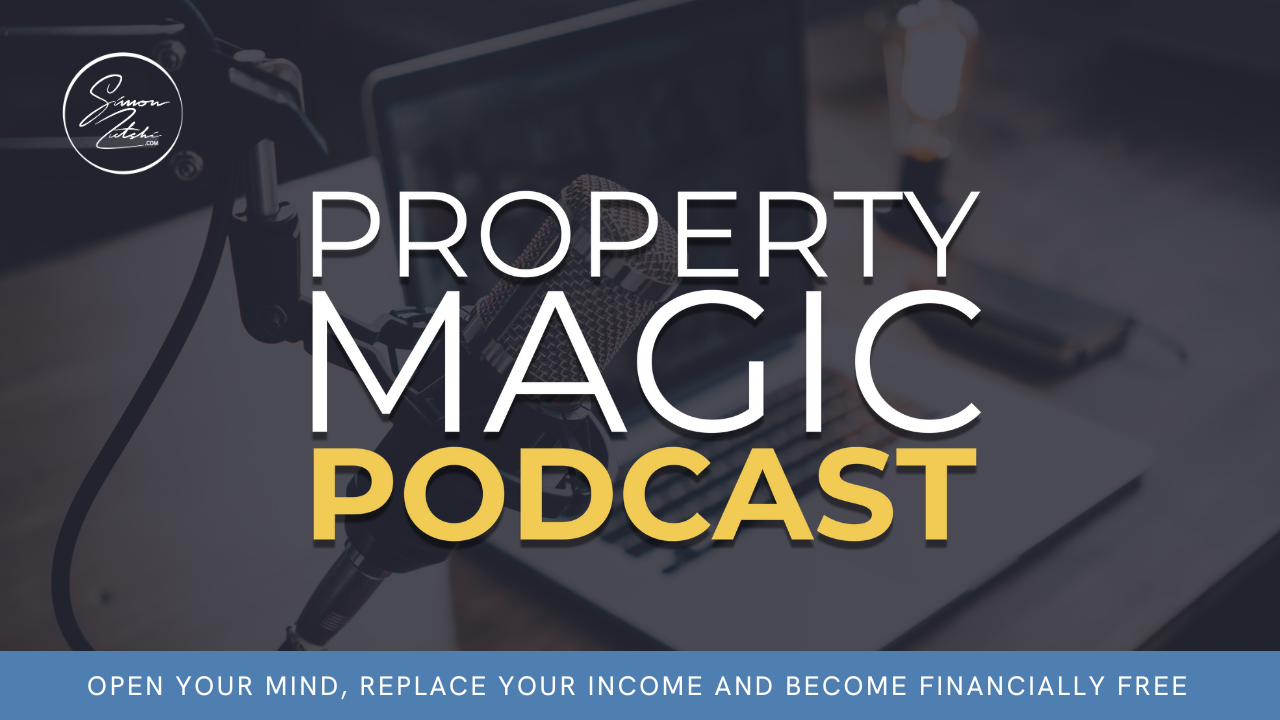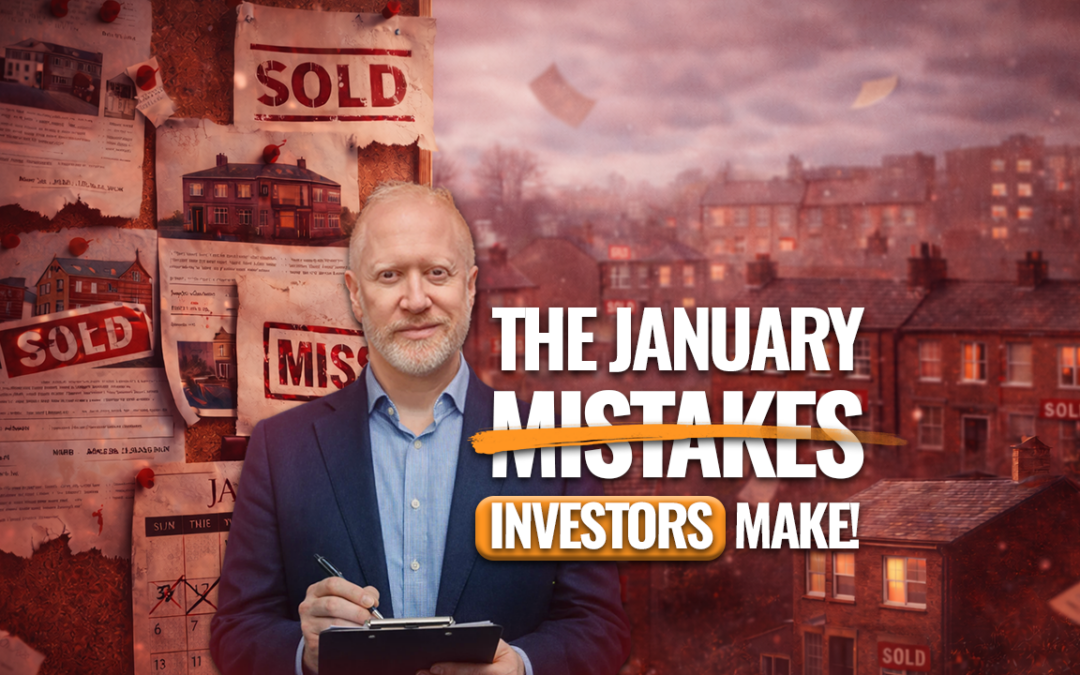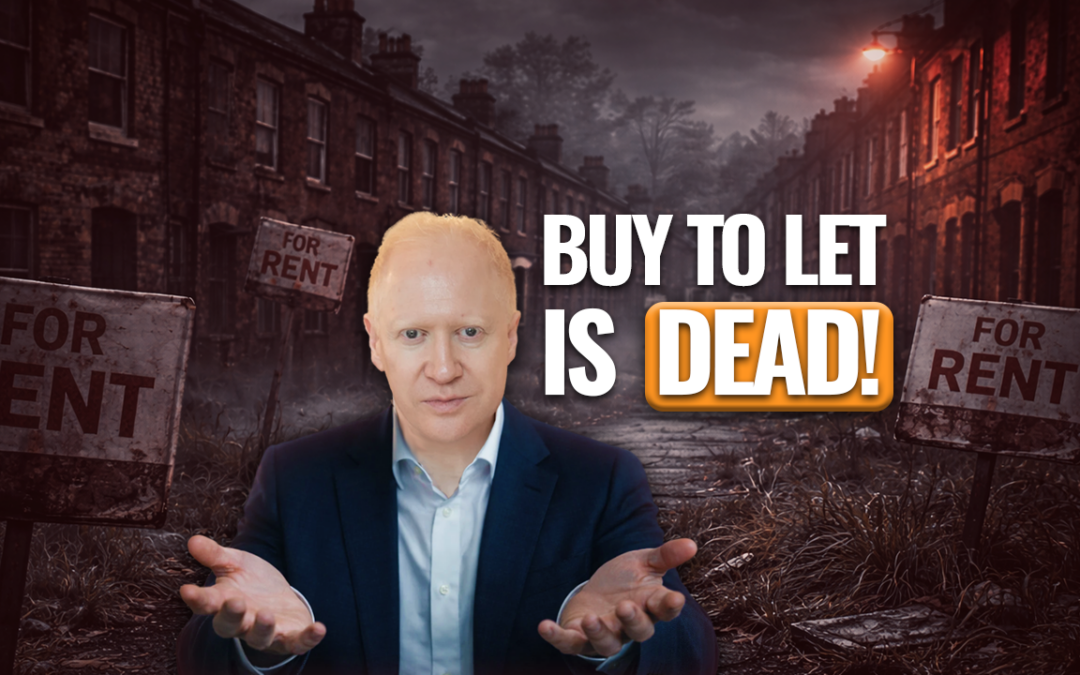Far too many people overcomplicate property investing. They get bogged down in endless research, hesitations, and assumptions, and as a result, they miss out on great opportunities. The truth is, property investing doesn’t have to be complex. In fact, it can be boiled down to just five straightforward steps. If you’re serious about building long-term wealth through property, understanding these five steps can save you time, effort, and a lot of frustration.
But before we dive into those steps, there’s a critical mindset shift you need to make: in property, no doesn’t mean never—it usually just means not now. Deals often don’t come together immediately. Some of the best property deals I’ve seen were sealed after months—or even years—of persistence. With that in mind, let’s walk through the five essential steps to finding and securing your next property investment.
Find Truly Motivated Sellers
Everything starts with the seller. If someone’s casually looking to get the best price and is happy to wait, they’re not who you want to be dealing with. You’re looking for motivated sellers—people with a property-related problem you can help solve. They may be facing financial pressure, dealing with an inherited property they don’t want, or needing a quick sale for personal reasons.
Once you identify a motivated seller, everything becomes easier. They’re more flexible on price and terms. This is where creative solutions like vendor finance or purchase options can come into play. Only around 5% of sellers are genuinely motivated, so finding them is your mission. You can use direct mail, word-of-mouth, or property sourcing software like Property Filter. Whatever the method, the golden rule is this: don’t waste time with unmotivated sellers. Move on quickly and find someone you can truly help.
Run the Numbers Quickly
Once you’ve found a property with a motivated seller, don’t get emotionally involved—get analytical. Within five minutes, you should be able to determine if this is a worthwhile deal. Look at the cash flow, calculate the return on investment, and compare those figures to your personal investing criteria.
Too many people spend time on deals that don’t stack up financially. If the numbers don’t work, either the price needs to come down or the income needs to go up. Until then, park it and move on. Focus your energy on the opportunities where the figures already make sense.
Book the Viewing
If the seller is motivated and the numbers look good, it’s time to visit the property. When you’re just starting out, it can be helpful to view more properties to build confidence and get used to the process. But as you grow more experienced, save your time for high-potential opportunities.
A common trap for many investors is stopping at this step. They find the deal, crunch the numbers… and then never follow through with a viewing. Don’t let nerves hold you back. Remember, you’re not committing to buying—you’re just exploring. And without that in-person experience, you’ll never get the deal done.
Make an Offer
Every property you view should lead to an offer. You’ve done the work—don’t walk away empty-handed. And here’s the counterintuitive truth: you don’t want your offer to be accepted right away. If it is, you probably offered too much.
Start low. Expect a rejection. Then ask the most powerful question in property negotiation: “What would work for you?” You’re not just haggling—you’re opening the door to a dialogue. A slight increase in your offer might still land you the deal, and at a far better price than if you’d led with your maximum.
And if they still say no? That’s fine. Because that brings us to the final—and perhaps most overlooked—step.
Follow Up Relentlessly
Most amateur investors hear “no” and walk away. But if you want to be a truly successful investor, you need to understand that “no” is usually temporary. Sellers’ situations change. Properties fall through. Motivation increases over time.
Follow-up is where deals are made. Stay in touch monthly. A short text, a quick call, or a polite email is all it takes to remind them you’re still around—and still interested. Always leave the door open when your offer is declined. Let them know you’re buying soon—maybe their property, maybe another. This creates urgency and positions you as a serious buyer.
Some of the best deals my students have done came a year or two after the first contact. The property might have cycled on and off the market, but because they stayed in touch, they were there when the seller was finally ready. In some cases, they secured the deal at a lower price than they originally offered.
Treat It Like a Business,
Not a Hobby
Let’s recap. Step one: find motivated sellers. Step two: run the numbers quickly. Step three: view the property. Step four: make the offer. Step five: follow up. That’s it. Five steps. Simple—but not necessarily easy.
There’s work involved. But if you treat property investing like a serious business, even part-time, you’ll get serious results. Treat it like a hobby, and you’ll get hobbyist returns.
The most successful investors aren’t the ones who do the most deals in the shortest time. They’re the ones who keep going. They follow up, again and again. They keep learning. And they keep applying these five steps with discipline and patience.
So go out there and make it happen. Because property investing does work—if you do.












